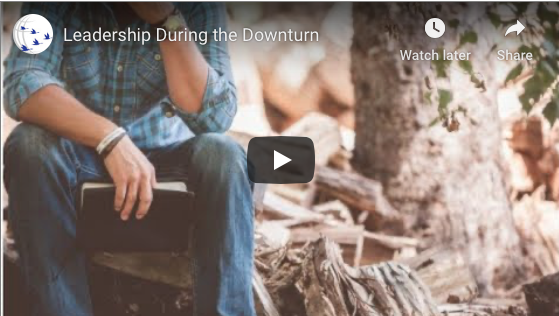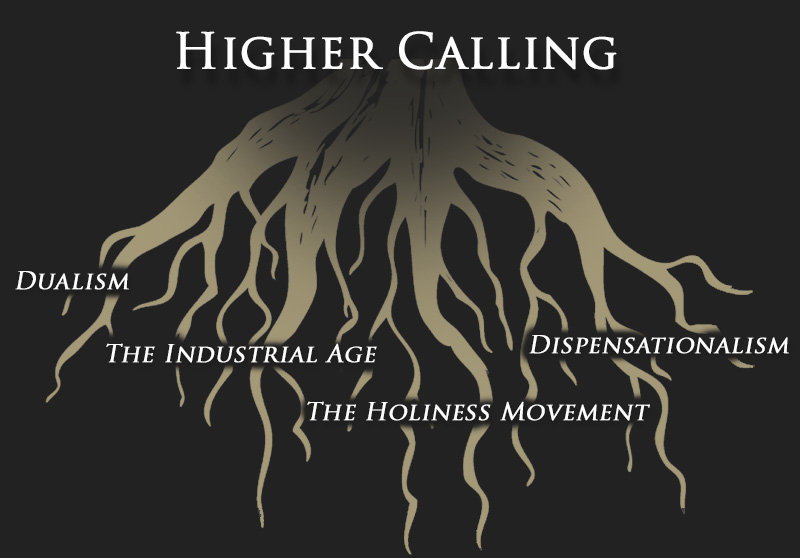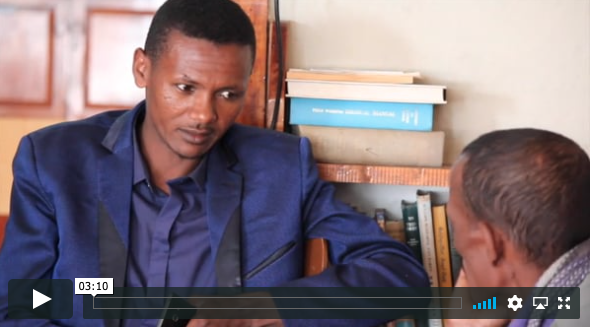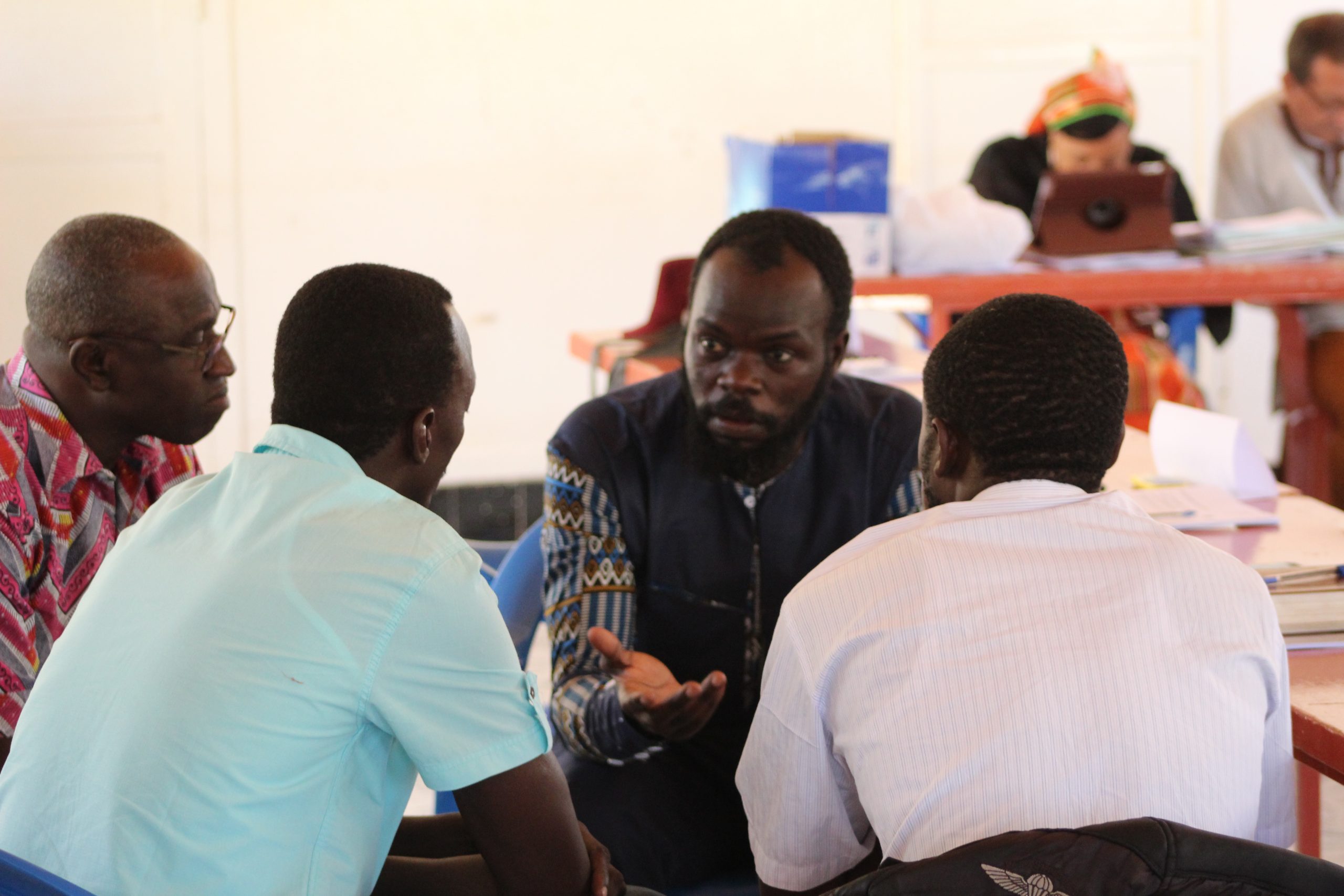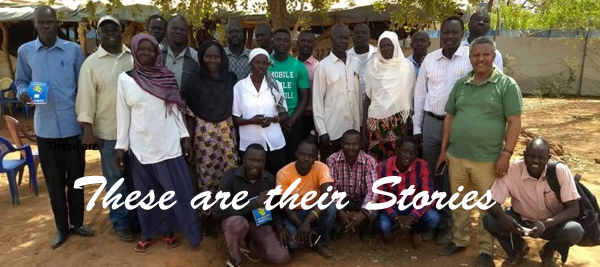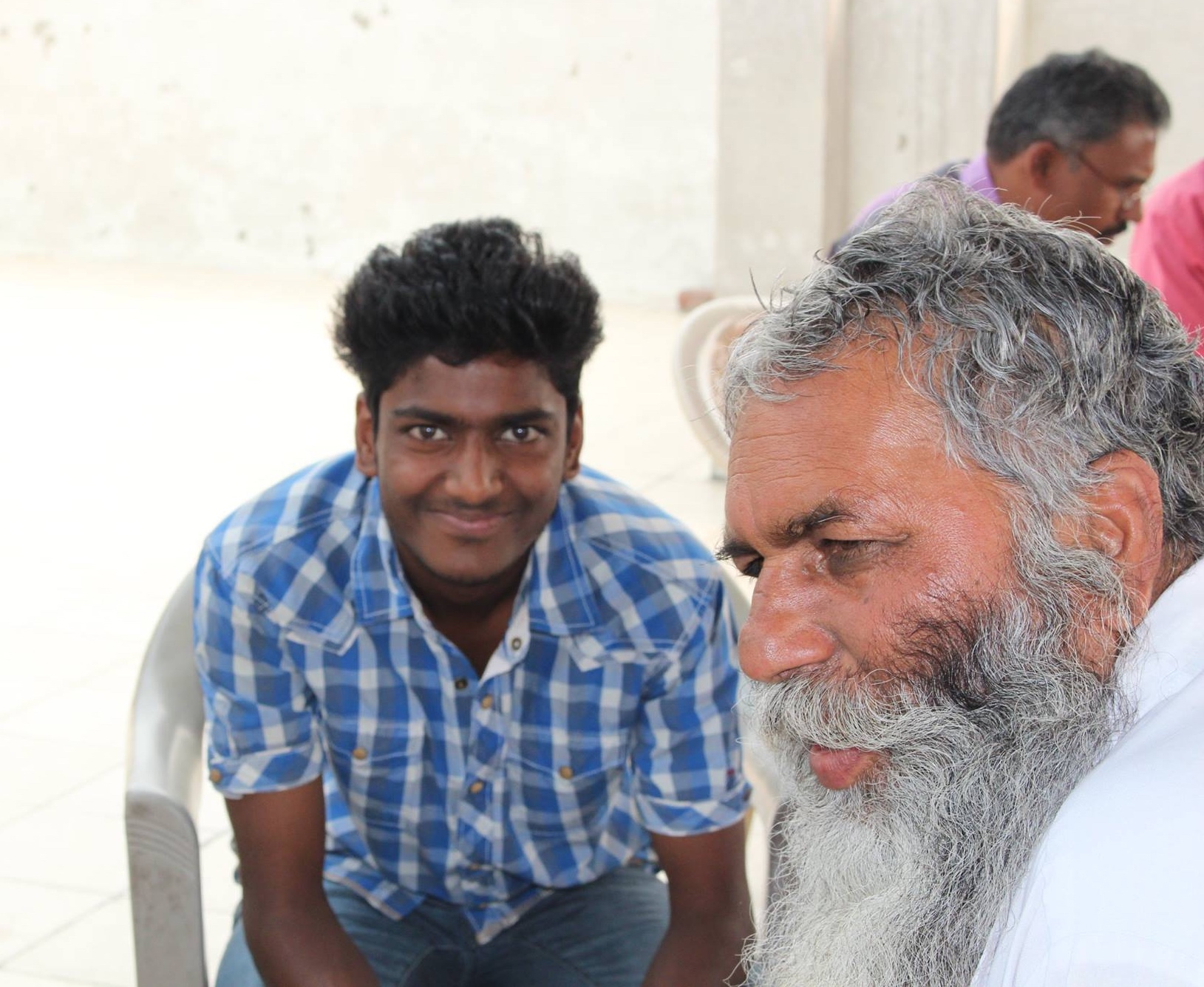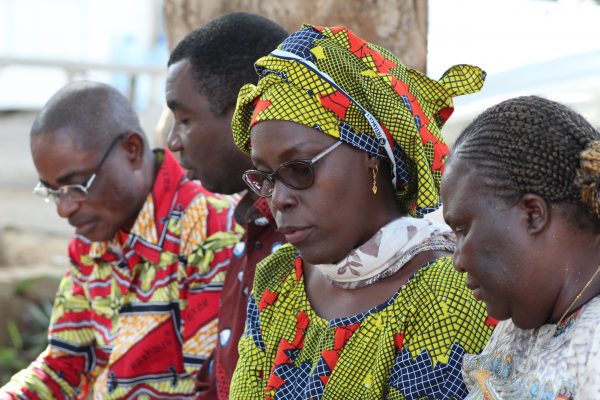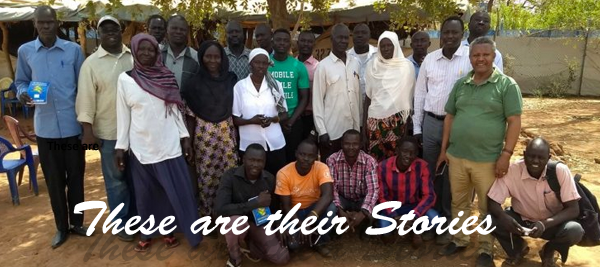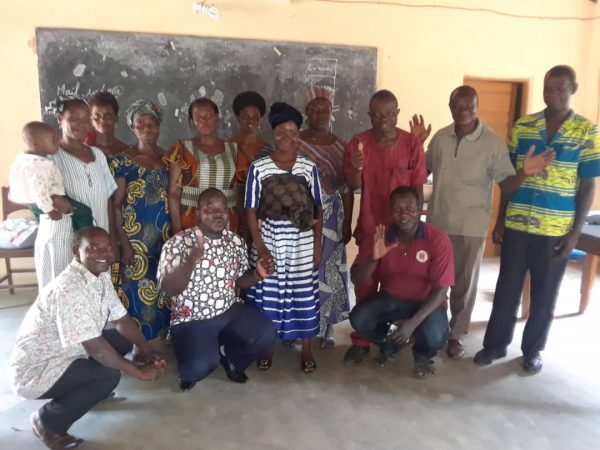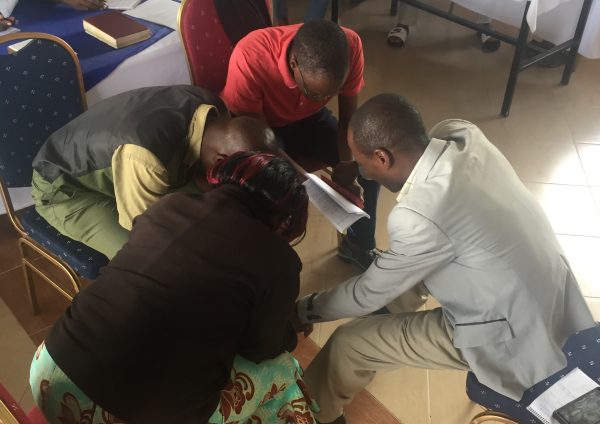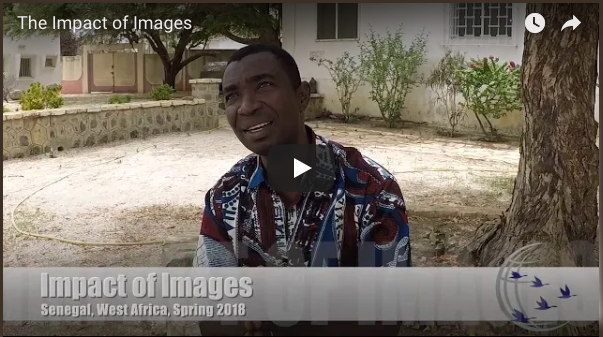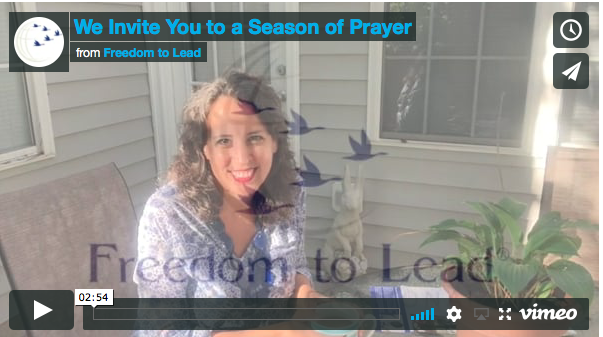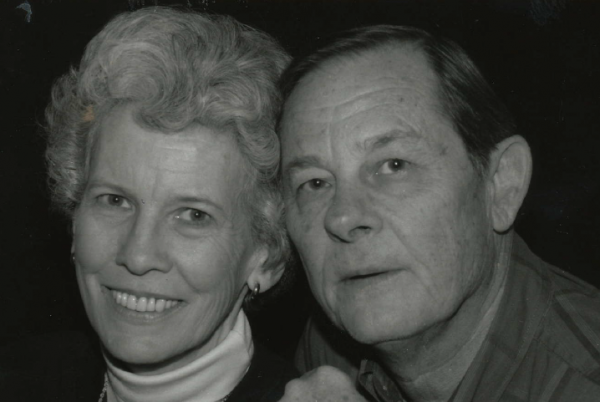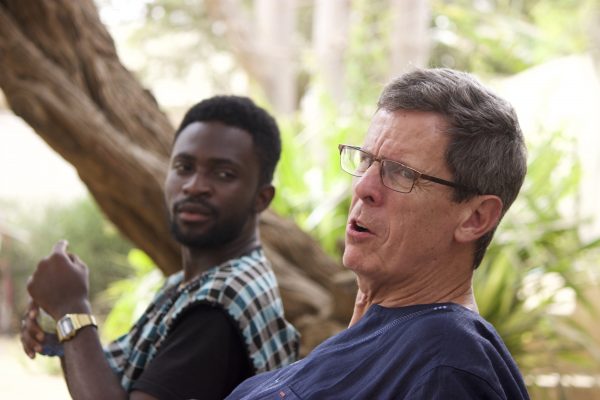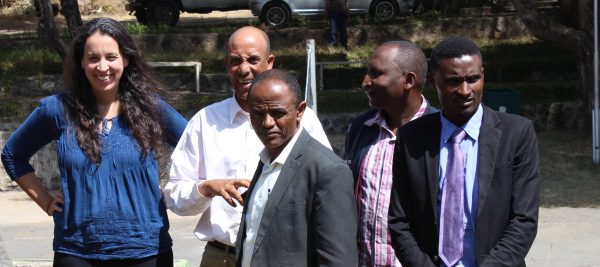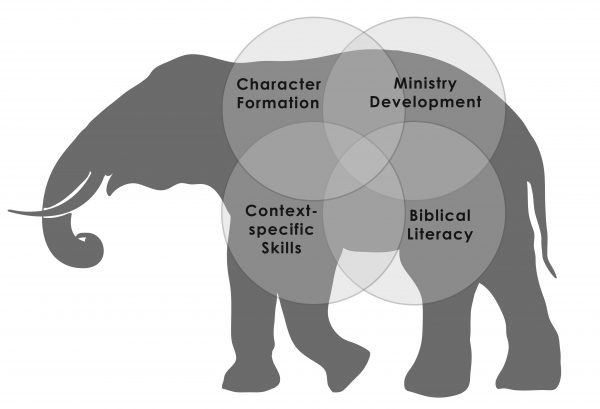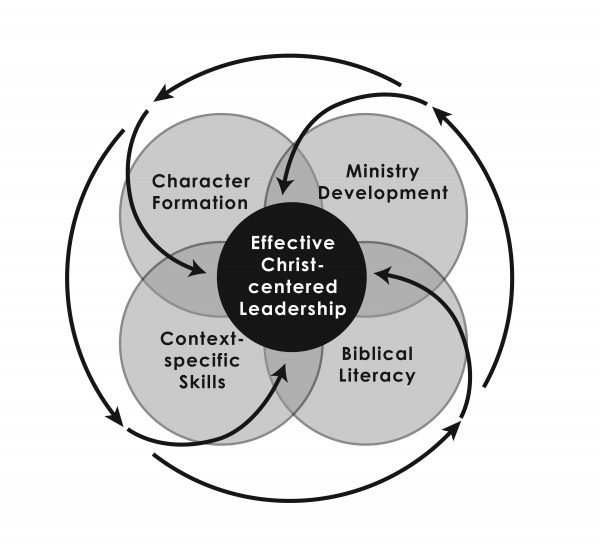“Servant leadership” is a term often used to describe how Jesus led – a servant to His followers. So are “servant leadership” and “Christ-centered leadership” one and the same? Or is there a distinction between a servant leader and a Christ-centered leader? Herman Hesse once told the story of a band of men on a mythical journey. The central figure in the story is Leo who accompanies the party as a servant. He does the menial chores for the group, but he also sustains them with his positive attitude and with song. Leo is a person of extraordinary presence. All goes well for the band of men until Leo disappears. At which time the group falls into disarray and their journey is abandoned. They cannot make it without Leo. Some years later, Leo is found and taken into the Order that sponsored the journey. As it turns out, Leo the servant, was the head of the Order, a noble leader. Servant as Leader The idea of Servant as Leader first came to Robert Greenleaf in 1958 as he read this story. At the time, he was an executive at AT&T, and was searching for approaches to leadership that would successfully mobilize the new generation of anti-establishment workers. In Servant Leadership: A Journey into the Nature of Legitimate Power and Greatness (1977), Greenleaf posed the question “Who is the servant leader?” He answered by writing: “The servant-leader is servant first . . . It begins with the natural feeling that one wants
Read moreSince last Summer, we’ve brought several prayer requests to you regarding conflicts here in the United States and around the world. There have been fears of civil war, coup d’etats, and tribal conflicts. Just last week we shared a prayer request regarding the need for peace and protection amid violent clashes in Senegal, West Africa. This week we praise God for news that a calm has returned to Senegal, but is calm the same as peace? Conflict is rarely neat, simple, or even clear. Sadly, the causes of conflict are many, but all conflicts demand a response.
Read moreFreedom to Lead International® (FTL) provides leadership development services to leaders in 50 countries throughout South Asia, Africa, and North America. We specialize using methodologies that engage leaders who are more likely to be influenced through oral-based methods (stories, images, drama, poetry, music, etc.) rather than through abstract theory or concepts. We call these people “storycentric communicators.” This video outlines some of the secular research, science, and cultural anecdotes behind this story-based methodology for adult learning. It challenges people in western cultures to realize the power of story, perhaps seeing that this story-based approach is for all of us. Transcript: The Power of Storytelling (Rick Sessoms:) Freedom to Lead International® is a 501(c)(3) nonprofit entity that provides leadership development services to leaders in South Asia, across Africa, and in the US. We specialize in using methodologies that engage leaders who prefer and are more likely to be influenced through oral-based methods rather than through abstract theory or concepts. We call these people “storycentric communicators.” The oral-based tools we use include stories, images, drama, dance, poetry, and music. We call these methods the “storycentric arts.” Think about a story you’ve heard that had an impact on you. Why did that story impact you? Several years ago, my wife and I visited Broadway to see the musical Wicked. This show is a prequel to The Wizard of Oz. It tells the story of Elphaba, the Wicked Witch of the West, and her early history in the land of Oz. Elphaba
Read morePatrick Lencioni asserts that there are only two motives that drive people to become a leader.1 I have worked with both.
Read moreCommunication usually fails except by accident. – Osmo Wiio In every leadership role I have ever held, my best efforts to communicate have often been misunderstood. If by chance you’re not familiar with Wiio’s Laws of Communication, my experience is all-too-common.
Read moreChrist-centered leadership (CCL) has become familiar verbiage over the past decade. Like “servant leadership,” its usage is ubiquitous, but its meaning varies among those who use the term. A quick Google search for CCL yields a range of definitions that include acting with integrity, hearing God’s voice, and being anchored in the presence, power, and ministry of God. What distinguishes Jesus’ leadership in light of more dominant leadership models of His day and ours?
Read moreEffective leaders are known for their ability to inspire in others their vision for a preferred future. These leaders imagine how the changes inherent in their vision will benefit their employees, their target population, and their bottom line. But less often do leaders think carefully about what their vision will undo.
Read moreSelf-awareness is a leadership buzzword — and for good reason. Leaders who are self-aware build stronger relationships, communicate more effectively, and tend to make better decisions. Yet self-awareness among leaders – especially among more experienced, higher-level ones – is a rare quality.
Read moreEpisode 1 of our new video blog is here! A Roundtable Discussion. How a leader responds to a crisis deeply impacts the culture of the organization. It is not so much about how a leader acts in crisis, but about how he or she reacts. A leader’s reaction to crisis will inform people about what is most important and what is inherently valued. As we all face the current crisis of COVID-19, this is a continuing discussion for leaders. Because we want it to be a discussion we have attempted to talk about it and invite you into the conversation.
Read moreWe live in uncertain times. COVID-19 is the earthquake that is rocking us at the moment, but the pandemic’s devastating after-shocks will shake people and societies for years to come. As the disease ravages many lives, the economic and psychological impact of this virus will likely wreak havoc on a much greater number of the world’s population. As leaders face the challenging months ahead, how will others remember us when the dust settles? Jim’s story is instructional for leaders during the downturn.
Read moreOrganizations in virtually every sector have access to data that can offer an advantage for developing new products, helping coworkers reach their potential, and improving customer experience. Companies on average manage three times more data than they did five years ago. Many organizational leaders devote valuable time diving into these pools of data searching for patterns, problems, or potential opportunities. This analytical work can be energizing when it reveals nuggets of information to gain a competitive edge. But leaders who know how to communicate their relevant data through a story structure have better odds of convincing others to take action.
Read moreThe organization I lead generates a bunch of data. We provide leadership development in under-resourced populations, so we have data about the number of leaders that are engaged in our programs. We have data about the number of events we conduct each quarter. We have cool data about the impact of our services on leaders. But when we began telling “Jairus’ story” to our stakeholders, the data has found a voice.
Read moreAt times the grind of leadership can seem futile. One that could attest to that reality would have been the Old Testament prophet Daniel. He had every right to wallow in self-pity, thinking that his life and leadership were a waste. The Sunday School conception of Daniel’s days was like a continuous prime time flick of hanging out in the lion’s den, interpreting King Nebuchadnezzar’s dreams, receiving historic prophetic visions, and seeing handwriting on the wall. But all these experiences made up a very small part of his work life.
Read moreThe biblical idea of the “gospel” is more than simply the individual salvation of men and women. Rather, the gospel impacts everything, including our work. This more robust idea of the gospel can be seen through a four-chapter biblical narrative: (1) Creation, (2) Fall, (3) Redemption, and (4) Fulfillment.
Read moreAbout 600 million people heard these words live from Neil Armstrong when he stepped for the first time onto the surface of the moon. As the iconic news anchor Walter Cronkite narrated this historic moment over CBS News on July 20, 1969, grainy images transmitted over television screens of an other-worldly space capsule touching down made the event seem simple and serene.
Read moreI am grateful for my church heritage that prioritized disciple-making around the world. Introducing men and women to the redeeming grace of Jesus Christ and cultivating them to become mature, reproducing leaders have been the privilege of my personal and vocational life. But the church’s penchant for lionizing missionaries and pastors – like myself – because of our status as “full-time ministers” has created a collective myopia in our ranks. This poor lens hinders us from seeing the broader landscape that is richly populated by Christian believers with enormous potential to advance the Kingdom as mechanics, marketers, mothers, and medical technicians.
Read moreThe church of my childhood graced me with priceless truths. But in church I also heard a half-truth. It is the notion that people who work in vocational Christian ministry have a high calling, and those who work in secular jobs don’t. This half-truth was more implied than overt, more caught than taught. It led me to choices I didn’t know I was making. Only later did I come to know how much this half-truth shaped my life, and how for countless others it has shut off whole worlds that might have been.
Read moreThroughout the course of this year, we at Freedom to Lead have been intermittently featuring segments called “These Are Their Stories.” We have been telling stories of men and women throughout Asia and Africa who have been impacted by God’s work in their lives and leadership through Freedom to Lead.
Read moreWhen Malick came to Freedom to Lead, he did not think he could be a pastor. Today he is thriving as he leads a congregation that impacts their community for Jesus Christ – thanks, in part, to the contributions of those whose hearts are turned to the unreached.
Read moreWhen you first meet him you’re slightly intimidated as he towers over you in height. His square jaw is set and his eyes are piercing. You can’t help notice the scars on his arm, but you try not to stare. But then he offers you a firm handshake and his white teeth smile against the contrast of his dark complexion. He tells you his name. For safety purposes in this post we’ll call him Samuel. He’s originally from Sudan, but he’s now a pastor in Uganda. You feel like there’s more to this story. Much more.
Read more“Could it be that orality is not about literacy at all?”
Six years later, this is what I have learned from experiencing it as a practitioner:
“No, orality is not about literacy. It’s not about literacy at all. Orality is about STORY.”
In fact, we at Freedom to Lead believe in this so strongly that we use the word “storycentric” to describe the cultures we work with. We recognize that “orality” has connotations- real or perceived – that can cause confusion. But it is story that captures the heart of both the nonliterate and the literate. It is both biblical stories and current, personal life stories that inspire all people to embrace the God of the Bible.
Read moreI think I’ve been getting it wrong all these years. Since that time two millennia ago in Antioch when followers of the Way were first called Christians, the church has carried God’s mission to the world. Evangelism and discipleship methods have varied over the centuries and the local church’s involvement in the advancement of the kingdom of God has looked different from culture to culture and has changed with the times. During the last decade, for example, there has emerged this new term in missiological communities called “orality.” Orality methods are essentially methods of evangelism and discipleship that involve oral-based communication like story, drama, music, and the arts to portray the gospel rather than linear, abstract, literate-based communication that has been done since the invention of the printing press. Missions groups have been recently saying that they would like to begin using orality methods for peoples and cultures that cannot or do not read. The tried-and-true literate-based methods would still be used for peoples and cultures that do read. At least that’s what I thought they were saying.
Read moreElizabeth grew up in a small town not too far from the capital city of Addis Ababa. A godmother-type figure was the one who raised her while her parents worked. She remembers her guardian taking her to church at a very young age. When she was a little bit older she was able to move back home to live with her parents and siblings. One day a church opened up next to their house. She remembers that they were singing. They were familiar tunes, songs she remembered hearing as a very young child. Intrigued, she went over there by herself, if only for the music. For two years she kept going back, drawn especially to the singing. One day the pastor was preaching from Romans 12 (“Rejoice with those who rejoice, mourn with those who mourn”). Something stirred in her heart with those simple words and she immediately accepted Jesus as her Savior upon hearing them. She was 12 years old. Her first work as an evangelist was to her own family.
Read moreMatthew* and his wife are simple people of Zimbabwe who lead a quiet life unto the Lord. When the AIDS epidemic swept throughout southern Africa in the late 80s, Matthew and his wife took in four children from their church home who had recently become orphans. Their heart for these children was due in large part to Matthew’s wife having grown up as an orphan herself. She knew firsthand what it’s like to walk that lonely road and is using her story to give her life to others. Over the years they began to add to the number of children they would bring in and care for. Today their ministry to these orphans have expanded to 66 orphans that reside with them. In addition to these 66, over 100 children are fed meals every day by their ministry.
Read moreOn a day filled with expectation, Jesus made His way to Jerusalem. His followers believed the Kingdom was about to be reborn. Those marching with Jesus had seen him raise Lazarus from the dead a few days before. You can understand their excitement. Along the parade’s path, crowds were shouting praises and dancing and singing, escorting Jesus on His “triumphal entry.”
“Hosanna!” they sang, “Blessed is he who comes in the name of the Lord.” Spreading their palm branches along the processional. We celebrate this on Palm Sunday. As parades go, it wasn’t very impressive. But for those who marched into the city with Jesus that day, it held all the promise of a new beginning.
Why was the crowd so joyous? What was it that created the excitement in these people, that caused them to sing, “Blessed is the King. Peace in heaven and glory in the highest!”? What was it that inspired them?
In a word, it was “hope.” The people saw in Jesus the fulfillment of their dream.
Read moreLike many places in Africa, Nigeria operates regionally by tribe. There are “Muslim” tribes and there are “Christian” tribes. Whoever is dominant in that region maintains the power. Stephen was born in the north where the power belongs to the Muslims. That means that the Muslims have a say in what kind of job one is allowed to have once he reaches age. Stephen grew up with a military father and an Anglican mother. From the time he was young he knew he wanted to help people. He thought that meant he would become a doctor someday. However, the Muslims in his area would not allow Christians to have “professional” jobs. Not sure of the options that he had, he discovered that he had an uncle living in the south. His uncle took him under his care and became Stephen’s guardian. Stephen was able to get an education in the south. His uncle’s Christian influence encouraged Stephen to walk away from medicine and begin a journey toward studying to be an Anglican priest.
Read moreOwen is a young leader in his late 30s who just started participating in Freedom to Lead’s The Garden Project. He and his wife have 4-year old twin girls. Owen works with the Church of the Nazarene among his people in Zimbabwe. He tells these stories in his own words.
In November 2018 I had the opportunity to attend a training workshop on leadership which was conducted by the Freedom to Lead International® (FTL). The FTL team took us on a one-week intensive leadership training program which helped me have a new perspective on leadership and how I can influence my world. Delivery and presentation of the lessons was storycentric whereby a biblical text was taken from the Bible and lessons/concepts were thereafter applied from the text to real life experiences.
Read moreAs winter creeps slowly into spring, Freedom to Lead is also experiencing a new season. Our travel calendars are packed full from now until December. We are grateful for being able to continue what was birthed back in 2009. At the same time we wonder how to cover all the opportunities. New initiatives are being started and new dreams are being explored. 2019 is a year of possibility.
Read moreThe Stage was set. God was about to make His move, to enter time. Would He come with mighty wonders and signs? Would He light the skies as far as one could see? Would angels shout His arrival with trumpets and drums? Would the whole earth rock from the impact of his landing? The Great Sustainer, by whom and through whom and for whom are all things. The Almighty who is more powerful than any army. The One who holds in His hand all life. The moment came for His invasion.
Read moreBefore Luke launches into Christmas, he issues a call to remember. Luke starts with a new story that is really a familiar story. It’s a story about a childless, old couple. Luke called them “righteous.” They were careful to follow all God’s commandments. They were good people, models of piety. But now they are old and childless.
Read moreAs we approach the Christmas holidays, we can’t help thinking back to our Thanksgiving. Uncle Ed likes white meat; cousin Megan dark meat. Oh yes, can’t forget the onion casserole. And we must remember to get a highchair for little Chrissy. Let’s not forget that Aunt Beth needs someone to pick her up. And we need to make the dining room table bigger. Where did we put those extension slats? It’s all so busy but so exciting – great food, familiar conversation. Catching up with those we haven’t seen in a while. And, at the center of all of it, thanking the Lord for all He has provided. Could I ask you, in this season between Thanksgiving and Christmas, as you gather with family and friends this year, to “give FTL a seat at the table?” To remember Freedom to Lead International in your prayer as you sit down to eat?
Read moreThanksgiving looks a little different this year. Today I am exchanging turkey, stuffing, and pumpkin for ugali, chapatti, and mandazi. Instead of watching schoolchildren perform plays about pilgrims and Indians I am watching a host of nationalities and tribal groups as they role play stories of old. But one thing remains the same: I am deeply grateful. This week Freedom to Lead is in Kenya. Next week we will go on to Zambia. In these weeks I am rubbing shoulders with men and women leaders from many nations who are deeply committed to the work of Christ and to leading well in their spaces. And I am deeply grateful. My large extended family in Florida is gathering potluck-style on folded tables outside. And while I miss being with them this year, I have a different kind of family right across the table from me here.
Read moreAs I approach Thanksgiving this year in the context of being a member of a ministry that seeks to raise up Christ-centered leaders, I think of a man who poured character and principles of leadership into my own life.
Read moreWell, of all the modules we have gone through – I remember the one that spoke of the field from which I learned patience. And often as-as I said from the beginning, I’m very sanguine, I like to rush things and get results as soon as possible. But with this module I learned how to prepare people like a field – to sow the seed, to maintain and nurture it until the harvest. It can be a long process. — Often when someone comes to church or has just accepted the Lord, I have learned that I should be patient and work alongside the person until the person reaches maturity.
Read moreWill you join us for a season of prayer throughout the month of October? Listen to more about this here: You can download an electronic copy of the entire October calendar by clicking here.
Read moreFrequently I ask people to name the leader who has personally influenced them the most. People typically respond describing leaders who are neither famous nor incredibly successful. In fact, they often talk about leaders who would not even be considered leaders by conventional definitions. Yet these leaders left an indelible mark. They bring to mind the Apostle Paul’s image of “treasure in jars of clay” (2 Corinthians 4:7). Common on the outside, but the content is priceless. My mother was one of them.
Read moreThe Discipline of Remembering Remember your leaders who spoke the Word of God to you – Hebrews 13:7a Since childhood, the churches I’ve attended emphasize “holy habits” that should be part of a Christian’s routine; bible reading, prayer, and deeds of compassion are always high on the list. However, the practice of remembering never seems to make the cut. That’s a mistake. Remembering our story of God’s faithfulness is essential to our present faith and our future hope.
Read moreTelling the Story As a global team in a faith-based nonprofit, a big part of our job is to tell our story. Depending on the audience, we might craft the story a little differently or choose to hone in on a specific kind of story that resonates best. But our job is to tell the story. It is the story of Freedom to Lead International. They are the stories of men and women in Asia and Africa who are being developed as Christ-centered leaders in their areas of influence. We tell stories of people who are seeing communities impacted and churches coming together and peace being made. Yes, there are even stories of hardships and challenges with prayerful hopes that God will make his way in these situations.
Read moreLast week examined the categories for effective Christ-centered leadership development that make up its components. An organization or ministry may focus on one or more of these categories.
- character formation
- biblical literacy
- context-specific skills
- ministry development
By sizing up the task before us, knowing we are functioning in these categories, we think that all’s well that ends well, right? Yes, but here’s the caveat. Research shows that “while every emerging Christ-centered leader needs all four of these categories to be truly effective, no single school or service provider is proficient to develop leaders effectively in all four categories.
Read moreLeadership Development Over the past several weeks we have been looking at how the term “leadership development” means a lot of things to a lot of people and without a common understanding of terms we might get lost in the wild west of expansion. Last week we at Freedom to Lead defined Christ-centered “leadership development” as “adult-focused, intentional cultivation that seeks to establish and enhance effective Christ-centered leadership practices.” However, merely having a working definition of leadership development is not sufficient to make the way forward. We need to size up the task before us.
Read more






